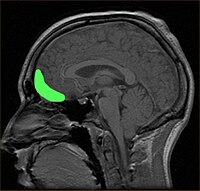
Antecedents of examinee motivation during low-stakes tests: examining the variability in effects across different research designs
Sign Up to like & getrecommendations! Published in 2020 at "Assessment & Evaluation in Higher Education"
DOI: 10.1080/02602938.2020.1846680
Abstract: Abstract To understand examinee motivation, researchers have used expectancy-value theory, which posits that examinee’s perceived value of the test and self-efficacy in the test domain impact test-taking effort. Conclusions from studies designed to examine these… read more here.
Keywords: test; low stakes; value; examinee motivation ... See more keywords

Exploring the differences between low-stakes proctored and unproctored language testing using an Internet-based application
Sign Up to like & getrecommendations! Published in 2019 at "Computer Assisted Language Learning"
DOI: 10.1080/09588221.2018.1527360
Abstract: Abstract In this work, we explore the differences between proctored and unproctored Internet administration for a Basque language low-stakes test considering demographic factors such as age, gender, and knowledge level in the subject. To this… read more here.
Keywords: low stakes; knowledge level; proctored unproctored; application ... See more keywords

Implementation and effects of low stakes quiz feedback on exam performance in a health professional program
Sign Up to like & getrecommendations! Published in 2023 at "Physiology"
DOI: 10.1152/physiol.2023.38.s1.5733131
Abstract: Introduction: The inclusion of interactive learning approaches in graduate education including mobile polling, game-based learning, physiology apps, eLearning activities and tablet use to supplement course content is an established means to improve student engagement. Strategies… read more here.
Keywords: quiz feedback; low stakes; physiology; exam performance ... See more keywords

Assessing Principals’ Assessments: Subjective Evaluations of Teacher Effectiveness in Low- and High-Stakes Environments
Sign Up to like & getrecommendations! Published in 2017 at "Education Finance and Policy"
DOI: 10.1162/edfp_a_00210
Abstract: Teacher effectiveness varies substantially, yet principals’ evaluations of teachers often fail to differentiate performance among teachers. We offer new evidence on principals’ subjective evaluations of their teachers’ effectiveness using two sources of data from a… read more here.
Keywords: subjective evaluations; low stakes; teacher effectiveness; evaluations teachers ... See more keywords

Uncovering the Complexity of Item Position Effects in a Low-Stakes Testing Context
Sign Up to like & getrecommendations! Published in 2022 at "Applied Psychological Measurement"
DOI: 10.1177/01466216221108134
Abstract: Previous researchers have only either adopted an item or examinee perspective to position effects, where they focused on exploring the relationships among position effects and item or examinee variables separately. Unlike previous researchers, we adopted… read more here.
Keywords: low stakes; effort; relationships among; position effects ... See more keywords

Police–suspect interactions and confession rates are affected by suspects’ alcohol and drug use status in low-stakes crime interrogations
Sign Up to like & getrecommendations! Published in 2022 at "Frontiers in Psychology"
DOI: 10.3389/fpsyg.2022.983362
Abstract: Background Low-stakes crimes related to alcohol and/or drugs are common around the world, but research is lacking on police–suspect interactions of such crimes. A large proportion of these suspects are intoxicated during interrogations, and many… read more here.
Keywords: low stakes; substance use; use; interrogation ... See more keywords

Rapid Guessing in Low-Stakes Assessments: Finding the Optimal Response Time Threshold with Random Search and Genetic Algorithm
Sign Up to like & getrecommendations! Published in 2023 at "Algorithms"
DOI: 10.3390/a16020089
Abstract: Rapid guessing is an aberrant response behavior that commonly occurs in low-stakes assessments with little to no formal consequences for students. Recently, the availability of response time (RT) information in computer-based assessments has motivated researchers… read more here.
Keywords: low stakes; stakes assessments; response time; rapid guessing ... See more keywords